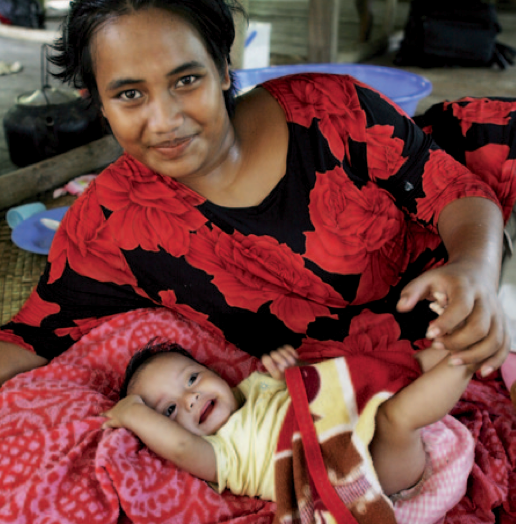On July 6, the Government released its response to the findings and recommendations of the Aid Review. Margaret Callan, a Visiting Fellow with the Development Policy Centre, shares five initial comments on the Aid Review and the Government’s response.
First, at last we have helping people overcome poverty unequivocally as the purpose of Australia’s aid. Everyone I know feels inspired when they see or hear about individuals or organisations doing things that help people much worse off than themselves. People-centred development will be supported by ordinary Australians and help maintain public support for our overseas aid program. And it will provide direction and encouragement for those who work in international development – nothing is more inspiring to aid workers, including aid bureaucrats in Canberra, than to meet individuals in developing countries who are benefiting from Australia’s aid.
Secondly, women and girls have climbed the ladder of 10 objectives for Australia’s aid. Maternal and child health services rank second only to water and sanitation as health goals. Girls are front and centre of the education goal. Empowering women is a goal all of its own, with participation in the economy, leadership and education singled out for particular attention. And the government has agreed with the review’s recommendations that promoting gender equality be a critical cross-cutting objective for the aid program, and that Australia be a firm and persistent advocate and practical supporter of gender equality.
Thirdly, the government agreed with the review’s recommendation that Australia exercise leadership in a small number of flagship areas. This should help AusAID decide on the areas where it needs to have high quality sector and regional expertise, which ought to be helpful in the human resource reforms underway there. The flagship areas, in turn, ought to rank highly in the criteria AusAID uses to make decisions on funding aid research. Overall this has the potential to enhance Australia’s influence internationally and in the multilateral institutions that are the channels for more and more of our aid.
Fourthly, harnessing the power of business. The ‘corporate social responsibility’ performance of multinational enterprises is increasingly being scrutinised by shareholders, lobby groups (particularly environmental and aid), and global business and financial information groups like Dow Jones. Increasingly, companies both large and small are publishing ‘responsibility’ reports alongside their annual reports or including information on their ‘corporate social responsibility’ activities on their websites. It is clear from these reports — and this author’s experience — that business already provides aid to people living in poverty and it does this for sound business reasons (reputation, employee expectations, social licence to operate). It would be worthwhile for AusAID to look for opportunities to join forces with business – a good example would be mining companies who could assist governments and aid agencies to access remote locations where basic health and education services simply don’t reach the people. At the same time, it will be important for AusAID to recognise that many businesses have yet to develop tools to assess the efficiency or effectiveness of their aid – more and more of them are tracking their expenditure year by year, but monitoring outputs is still a work in progress for most companies. So there is plenty of work to be done on business and development. Note: this author is working on this subject at the Development Policy Centre.
Finally, bravo to the review team for tackling the political announcements culture that plagues the aid program. And good luck to AusAID in getting Ministers and Prime Ministers to focus more on the core challenges and work of the aid program — effective aid that helps people overcome poverty.
Margaret Callan is a Visiting Fellow with the Development Policy Centre at the Crawford School, ANU.



Leave a Comment